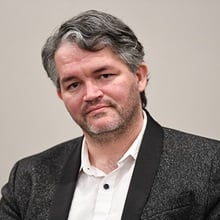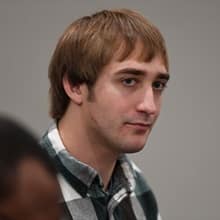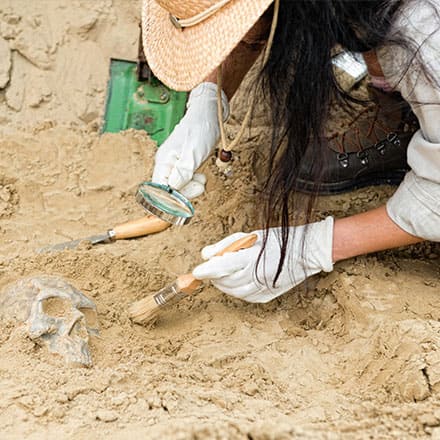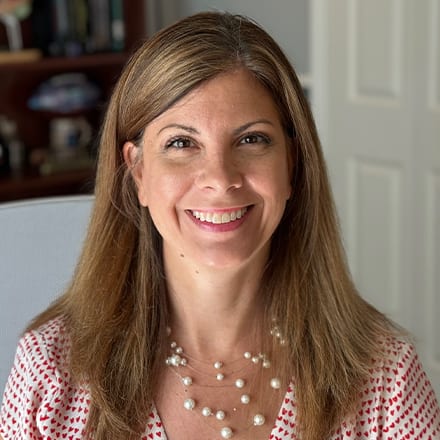Counseling Residency Prepares Students for Real-World Clients

Southern New Hampshire University mental health counseling students, some just weeks from beginning their first sessions with real clients, came to the SNHU campus in November for an intensive, week-long residency program.

For students who recently began their master’s in clinical mental health counseling program, the in-person residency was their first chance to meet faculty and fellow students and start learning the basic techniques - or micro-skills - they will use as professional counselors. For others, it was their second visit to campus and a chance to tackle more advanced skills and group therapy techniques, as well as make final preparations for their first supervised fieldwork at mental health facilities in their communities across the country.
“Residency here at Southern New Hampshire University in our counseling program is an opportunity for students to come together and really practice those skills needed to be a counselor in person,” Dr. Eric Jett, a clinical faculty member, said. “They get a lot of opportunity to learn the content online, and now is their chance to put it into action and to really see what it’s like to be a counselor."
In-Person Practice and Connecting with Others
The mental health counseling program takes place chiefly online, with students often interacting with one another and with faculty members via video. The two residencies serve as a chance for students to further develop relationships with classmates, while faculty have the opportunity to more closely observe students and provide real-time feedback during roleplay and other simulated counseling activities. This is valuable to both students and faculty.
Larson Viljanen said being able to demonstrate in-person the skills he’s learned throughout the program and get direct input from others was helpful.
“Doing it in person is just a good way to getting really good feedback and really consolidating everything you’ve learned, in person, and just feeling more confident in it,” he said.
Clinical faculty members like Dr. Kristi Cannon said the opportunity to observe students gives her another perspective on their abilities.
“I think … the residency component is a really important piece that allows us that face-to-face. There’s real value in being able to work one-on-one with our students in a direct format,” she said. “Certainly, as a faculty member, it’s valuable to me to get some eyes and ears directly on my students and be able to self-correct in the moment as they’re practicing their skills throughout the week.”
Preparing for Real-World Clients
Residency I takes place during students’ second term in the program and focuses on the basic micro-skills – such as eye contact, questioning and body language – used to connect with a client during a counseling session. Residency II is the last piece of the program before students embark on their fieldwork by completing a 100-hour practicum and 600-hour internship at a mental health agency in their communities. This is their first opportunity to begin working with real patients in a clinical setting and is a significant milestone in their careers.
A faculty member and mentor at their internship site supervises students during their fieldwork. While they have studied the theory and practices inherent to mental health counseling, the supervised time working with clients serves as a transition period into the professional world.

Viljanen is looking forward to beginning his fieldwork soon and said the mental health counseling program generally, and the residencies specifically, helped him prepare in ways that surprised him. For example, he was able to ask about play therapy and other techniques commonly used with the “trauma-based” and teenage populations he expects to encounter at his practicum and internship sites.
“I think the residency will help transition into my field placement in a lot of ways that I wasn’t really considering before,” he said.
While the residencies help prepare students for their fieldwork, their internship will help build their confidence to begin the next phase of their careers.
“It really prepares them but also gives us the ability to say, ‘We vouch for this person, and they’re ready to be a counselor,'” she said. “I think it also is really important because it allows students to gain the confidence that they need to know that they can do this. It’s one thing to practice with your peers. It’s a whole other thing to practice in an agency with real clients with real issues and things that are unpredictable.”
Addressing Bias and Embracing Diversity
Woven throughout the mental health counseling program and specifically addressed at both Residency I and II is the vital task of embracing diversity of all kinds and identifying implicit biases that could make it more challenging to help clients.
“We really are mindful of the fact that our students are diverse. They come from a wide variety of areas and cultural identities, and our faculty are as well,” Cannon said. “That’s something we really want to reiterate. We really thread it through our curriculum.”
Chris Depoy, an Indiana resident preparing to begin fieldwork, said the diversity in the student body and faculty members was one of the factors that attracted him to the SNHU program.
“One of the things about the program is it offers a lot of diversity among the students and faculty from many different cultures and many different backgrounds,” he said. “When we’re counselors, we’re going to have many different clients. We’re not just going to have one demographic, so being able to already have that experience working with people from different backgrounds helps enrich our ability to help them.”
Joe Cote is a staff writer at Southern New Hampshire University. Follow him on Twitter @JoeCo2323.
Explore more content like this article

What Can You Do with an Anthropology Degree?

SNHU Spotlight: Tiffany Daniels, Psychology Instructor

Is a Psychology Degree Worth It?
About Southern New Hampshire University

SNHU is a nonprofit, accredited university with a mission to make high-quality education more accessible and affordable for everyone.
Founded in 1932, and online since 1995, we’ve helped countless students reach their goals with flexible, career-focused programs. Our 300-acre campus in Manchester, NH is home to over 3,000 students, and we serve over 135,000 students online. Visit our about SNHU page to learn more about our mission, accreditations, leadership team, national recognitions and awards.

